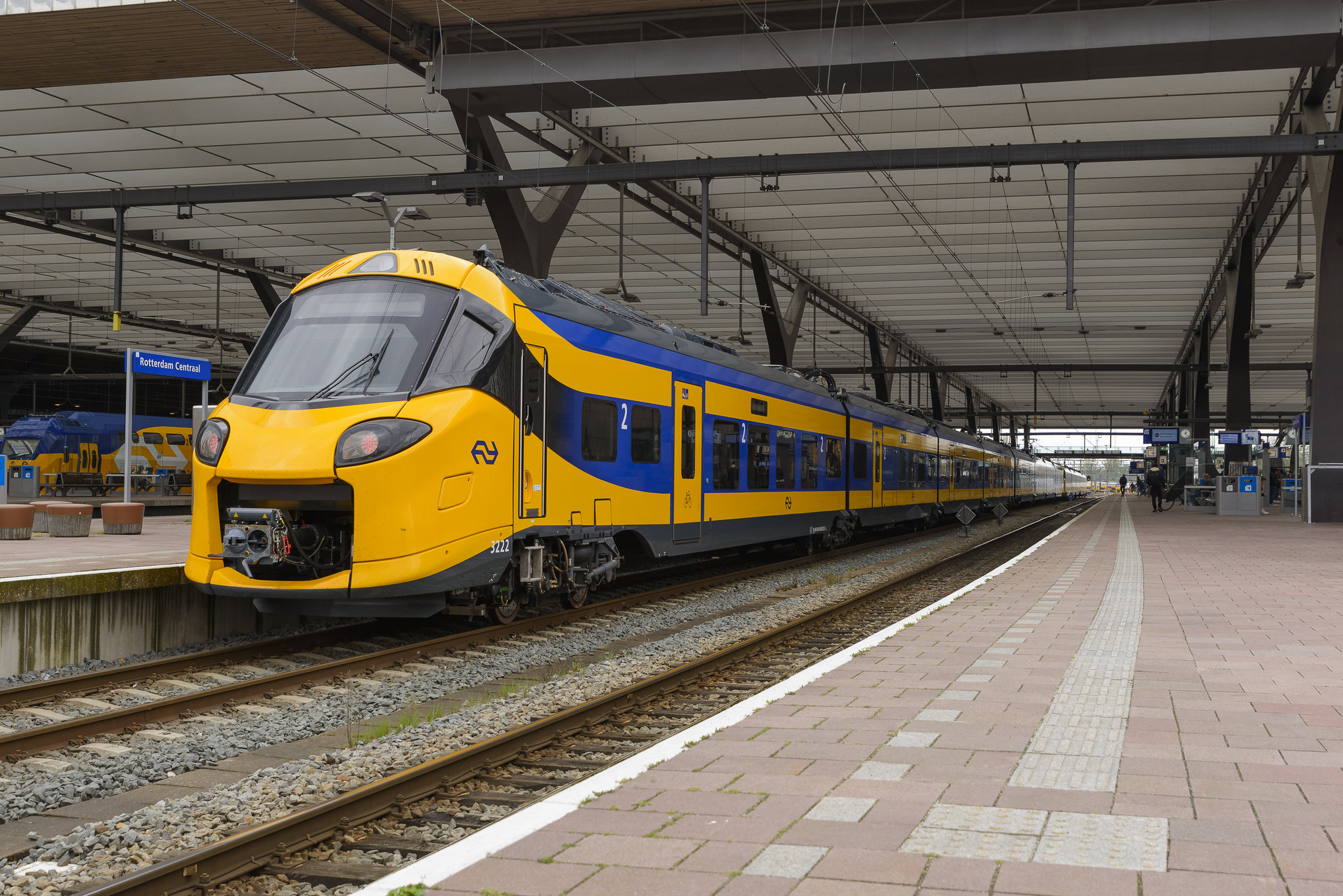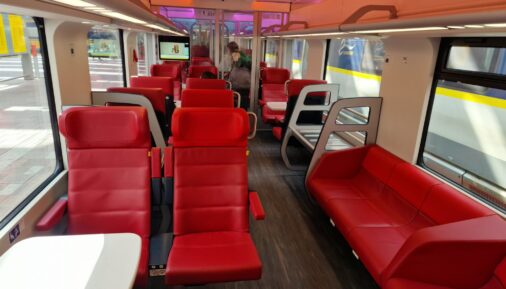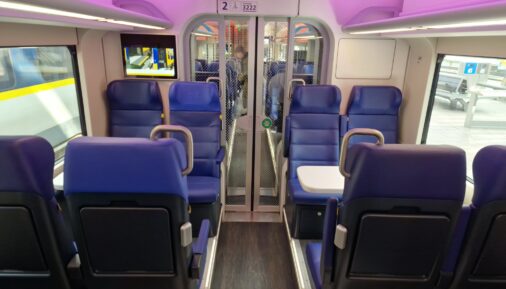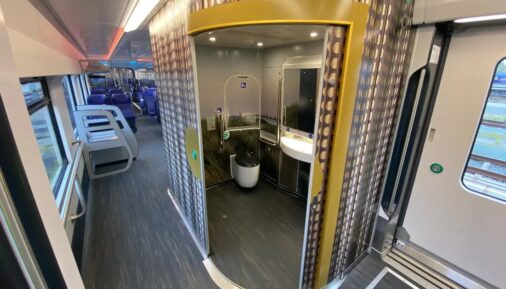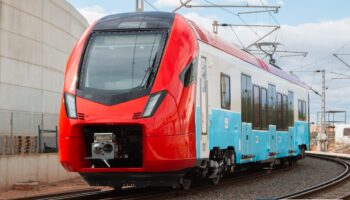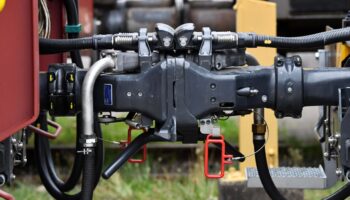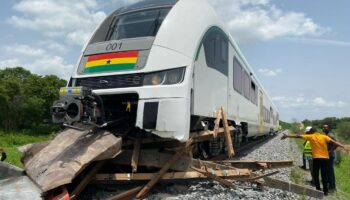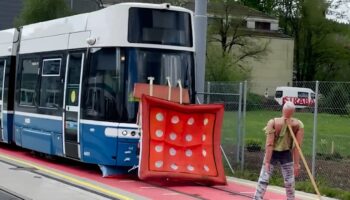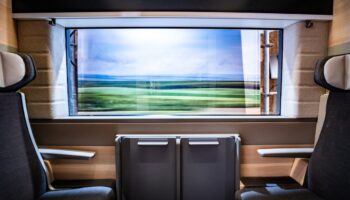Netherlands: National operator Nederlandse Spoorwegen (NS) has started the final test of one five-car and one eight-car vehicles. During the first run between Amsterdam and Rotterdam with passengers on board, malfunction in door closing and locking system was discovered. Later it was fixed and the tests continued.
Intercity Next Generation (ICNG) train is developed on the basis of Coradia Stream platform, ordered by NS and produced at Alstom’s site in Katowice, Poland. It can reach a top speed of 200 km/h. However, such speed is only allowed on the high-speed line which connects Schiphol, Rotterdam, Breda and the Belgian border. ICNG will run on the main rail network at no more than 160 km/h. Alstom notes that the new train consists of components that are 95% recyclable and is fitted with a regenerative braking system that reduces energy consumption by 35%.
Five- or eight-car trains are connected by Jacobs bogies. In eight-car trains, all bogies are powered, in five-car trains there is only one of this type per car. The doors are equipped with sliding steps for passengers with limited mobility. The interior is divided into first- and second-class. The five-car version has 256 seats, the eight-car version for the Netherlands has 417 seats, and the Belgian version has 410 seats due to additional luggage space.
Under the contract concluded in 2016 and the option exercised in 2019, Alstom is to supply the operator with 99 trains worth more than €1 bln, including 49 five-car and 30 eight-car trains for the Netherlands and 20 eight-car trains for Belgium. NS is expected to start commercial operation of the trains in the Netherlands in December. They will replace ICRm locomotive-hauled passenger cщфсруы, which were manufactured from 1978 to 1984 by Germany’s Talbot. The trains for Belgium, in turn, are due to begin operating in 2025. The Belgian version is designed to run on 25 kV AC and 1.5/3 kV DC electrified lines, while the Dutch version is designed to run on 25 kV and 1.5 lines.
Initially, train deliveries were planned to start in January 2020, with putting into operation was scheduled for 2021. However, the start of deliveries was delayed even before the COVID-19 pandemic, and it subsequently caused additional problems in production and testing. The first five-car train began testing in May 2019 in Velim, the Czech Republic, followed by an eight-car train, with test runs starting in August 2020. ICNG then arrived for testing in the Netherlands in May 2020, with approval received late in 2022. In turn, testing on the Belgian network began in June 2021.



